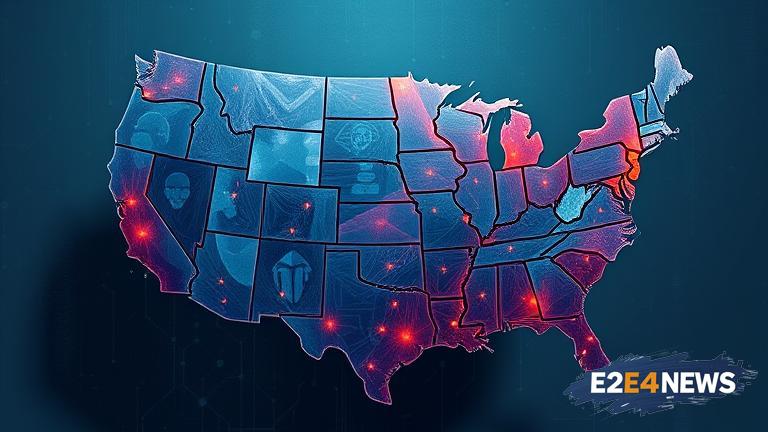In a bid to safeguard citizens’ neurological information, multiple US states have passed landmark privacy laws to regulate the collection and use of brain data by devices. This move is seen as a crucial step towards protecting individuals’ mental autonomy and preventing potential misuse of their brain activity. The laws, which vary from state to state, aim to establish clear guidelines for companies that develop and market brain-computer interface (BCI) technologies, such as neuroheadsets and brain-sensing wearables. These devices have gained popularity in recent years, particularly among gamers, athletes, and individuals with disabilities, due to their ability to track and analyze brain activity. However, concerns have been raised about the potential risks associated with the collection and storage of brain data, including the possibility of unauthorized access, exploitation, and manipulation. The new laws seek to address these concerns by requiring companies to obtain explicit consent from users before collecting and processing their brain data. Additionally, the legislation mandates that companies implement robust security measures to protect brain data from unauthorized access and ensure that it is not shared with third parties without users’ consent. The laws also provide users with the right to access, correct, and delete their brain data, as well as opt-out of data collection altogether. Furthermore, the legislation establishes penalties for companies that fail to comply with the regulations, including fines and legal action. The passage of these laws has been welcomed by privacy advocates and experts, who argue that they are essential for protecting individuals’ mental privacy and preventing the misuse of brain data. However, some industry stakeholders have expressed concerns that the laws may stifle innovation and limit the development of BCI technologies. Despite these concerns, the laws are seen as a necessary step towards ensuring that the benefits of BCI technologies are realized while minimizing the risks associated with brain data collection. As the use of BCI technologies continues to grow, it is likely that more states will follow suit and introduce similar legislation to protect citizens’ neurological information. The laws are also expected to have a significant impact on the development of BCI technologies, with companies likely to prioritize privacy and security in their design and implementation. In the long term, the laws may also lead to the establishment of federal regulations, providing a uniform framework for the collection and use of brain data across the US. The move is also seen as a significant step towards recognizing the importance of neurological privacy, which is increasingly being regarded as a fundamental human right. As such, the laws are likely to have far-reaching implications, not only for the development of BCI technologies but also for the broader field of neuroscience and the protection of human rights. The laws are also expected to raise awareness about the importance of brain data privacy and the need for individuals to take steps to protect their neurological information. Ultimately, the passage of these laws marks a significant milestone in the quest for neurological privacy and highlights the need for ongoing efforts to protect citizens’ brain data in the digital age.
